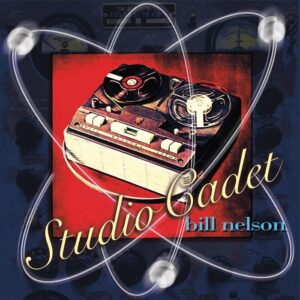How a Legal Fight Over Ray Charles’ Song Rights Might Impact the Music Industry
Music producers watch closely as the Ray Charles Foundation tries to save its lawsuit against the singer’s children by reversing itself. The litigation explores key issues in song terminations. In a battle over rights to Ray Charles’ famous songs, the charitable foundation that was bequeathed the singer’s money and assets is suddenly in a tough spot, in danger of losing the substantial revenues that “I Got a Woman,” “A Fool for You,” “Mary Ann” and other hits generate each year.
That’s because Charles’ children, who largely were cut out of the will, are attempting to terminate a copyright grant on the songs to Warner/Chappell Music. If the songs reverted to the children, then the Ray Charles Foundation no longer would get royalty checks.
In late March, facing this potential loss, the foundation sued the children, seeking a declaration that the termination notices are invalid. To make this argument, the estate argued that Charles’ songs were made under employment to a record label and music publisher. As such, these songs are allegedly works made for hire, “authored” by the predecessor to Warner/Chappell, and the children have no termination rights.
But if that’s really true, shouldn’t it be Warner/Chappell suing Charles’ children?
In late September, a judge arrived at the same conclusion but left the door slightly ajar to a lawsuit if the songs were not made for hire.
So, rather incredibly, the Ray Charles Foundation switched positions this month and now is arguing that the songs were not, in fact, made for hire. The litigation could set up the next big court decision on termination rights, a suddenly important part of copyright law that is causing the music industry fits now that artists such as Bob Dylan, Tom Waits and Tom Petty have sent their own notices.
The industry is still awaiting the big ruling on whether song artists do their work under employment conditions that would make them ineligible to terminate rights.
Earlier this year, in a closely watched battle, original Village People singer Victor Willis won a big victory by getting a federal judge to reject publishers’ claims that he couldn’t regain control over his work. But the judge’s decision didn’t address the “made for hire” defense because the music publisher he was fighting dropped the claim before the decision came.
In the suit brought by the Ray Charles Foundation, the children responded by essentially saying that if it was true that the songs were authored by the music publisher, the foundation didn’t have standing to pursue them — because it held no rights.
The Ray Charles Foundation’s reply: Well, we’re the ones who benefit from the rights.
On Sept. 25, U.S. District Court Judge Audrey Collins ruled that if “the works were not works made for hire and the foundation were receiving royalties from simple assignments, [then] it would be a ‘beneficial owner’ in the copyrights and would have standing to assert an infringement claim.”
An infringement lawsuit, yes. But the judge was skeptical whether the foundation would have such standing to challenge the terminations. She ordered more briefing on the issue.
In reaction, on Oct. 2, the foundation made the case that Congress has been silent on who has proper standing to challenge terminations. Since the only provision in copyright law about that standing pertains to a copyright-infringement claim, the judge should use it to confer standing to the foundation.
That goes to the latter part of Collins’ “if … then” conditional formulation, but the foundation also needs to show the “if” part — that the songs are not made as works for hire, meaning it has to backtrack from the original position. Unsurprisingly, the foundation now admits Charles is the author and that he assigned his work.
On Oct. 9, Charles’ children — represented by Marc Toberoff — submitted a response. Toberoff is the same lawyer attempting to terminate rights to Superman from Warner Bros. Here, he essentially is looking to grab back Charles’ songs from Warner/Chappell.
In the response, Toberoff says the express terms of copyright law don’t confer standing on a “beneficial owner” to litigate termination disputes. And even if a judge finds some form of implicit standing, Charles’ children say the foundation can’t amend the lawsuit with factual allegations inconsistent with the original complaint.
“For example,” the defendants write, “whereas the initial complaint alleges that the ‘musical compositions were composed [by Ray Charles] as an employee of [W/C predecessor] Progressive,’ the new complaint would need to state the opposite. Whereas the initial complaint alleges that the songwriters contract merely ‘memorialize[d]’ the publishing company’s ownership of the songs at inception, the new complaint would need to state that the contracts were affirmative copyright grants. … The list goes on.”
The stage is now set for a ruling that could be quite important.
If the judge agrees that the foundation has standing and allows the case to go on, it would set at least some precedent for other royalty recipients — say, record producers –to challenge termination notices.
And then the judge potentially will address the other prong: whether the Ray Charles songs actually are “made for hire,” a topic that’s substantially crucial for record labels and music publishers on the receiving end of termination notices. Of course, the foundation now agrees with Charles’ children that the songs in dispute are not works for hire. It could end up meaning that Warner/Chappell has to assert itself into the fight lest a ruling come that robs them of songs.
Source: The Hollywood Reporter


